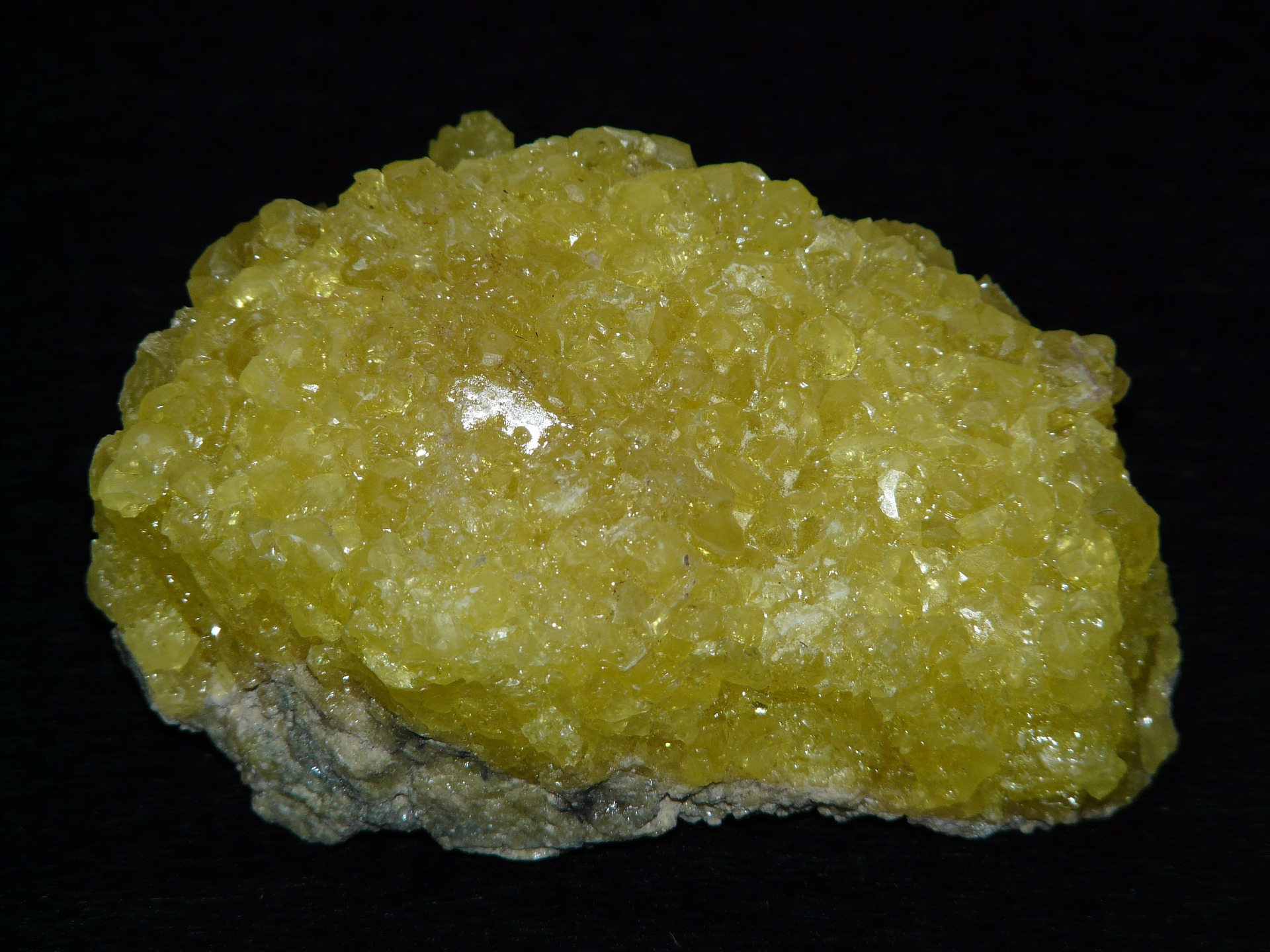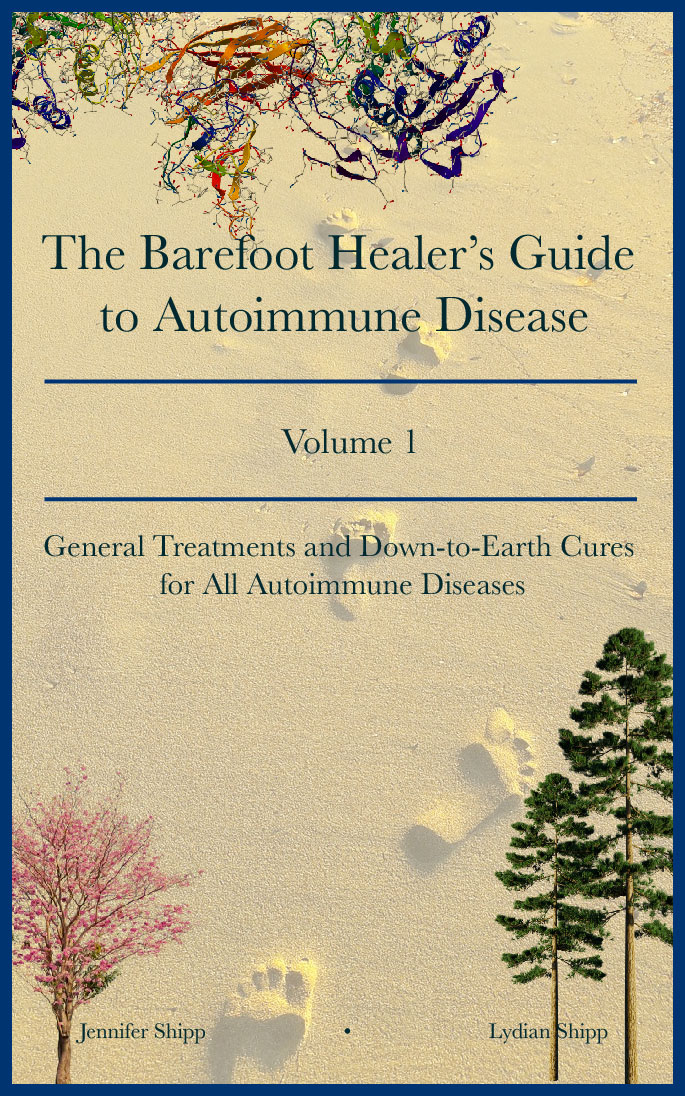 The Role of Sulfur Deficiency in Autoimmune Disease Development
The Role of Sulfur Deficiency in Autoimmune Disease Development
Sulfur is a major mineral, and though it doesn’t have a formally established RDA in the United States, this doesn’t diminish its importance for human health and healing. Most easily accessible sources will tell you that sulfur deficiency in the US and developed countries is rare. But, the reality is that a large number of people are deficient in this essential mineral. People who eat a diet low in animal proteins and high in grains and cereals (like vegans or strict vegetarians) are especially likely to become deficient in sulfur, but even people who eat a variety of foods rich in sulfur (such as eggs, onions, meats and eggs, nuts, cruciferous vegetables, etc) may become deficient if they eat foods that were grown in sulfur deficient soils (which, these days, this describes most soil in the developed world).
Because much of the origin of sulfur deficiency in humans comes from an initial sulfur deficiency in plants, people who live in areas where the food is grown in volcanic, and therefore sulfur-rich, soil are less likely to develop certain health problems associated with sulfur deficiency. For example, Icelanders have lower rates of depression, obesity, heart disease, and diabetes, and a longer life expectancy, than individuals who live in the US and Canada. When these same Icelanders move to a similar latitude in Canada, their risk for developing these health problems increases to match that of their Canadian neighbors’, even if they enjoy the same foods and dishes that they ate in Iceland. Some researchers speculate that this is because locally grown Icelandic foods that make up the core of the Icelandic diet, like potatoes, beets, and cabbage, are rich in sulfur. When the Icelanders move to Canada, the potatoes, beets, and cabbage in Canada haven’t been grown in the same sulfur-rich soil, and therefore have notably lower sulfur levels than the exact same foods grown in Iceland. So, even if the immigrant Icelanders follow the same diet in Canada, they won’t be getting as much sulfur in their diet as they did living in Iceland, and therefore are significantly more likely to develop a deficiency in this mineral as well as the health problems that accompany the deficiency.
 Doctor's Best MSM Powder with OptiMSM, Non-GMO, Vegan, Gluten Free, Soy Free, 250 Grams
Doctor's Best MSM Powder with OptiMSM, Non-GMO, Vegan, Gluten Free, Soy Free, 250 Grams
So, when a person doesn’t consume enough sulfur through their diet or supplementation, their body will be unable to manufacture cholesterol sulfate. Without sufficient cholesterol sulfate, diminished fat digestion will occur (leading over time to fat-soluble nutrient deficiencies in addition to the initial sulfur deficiency), and the digestive tract will become more vulnerable to infection and colonization by pathogens. But, the body still must continue to function, so other substances have to step in and take on the role normally occupied by cholesterol sulfate, thereby leading to deterioration of other areas and functions in the body, which we’ll see next.
Cholesterol sulfate also plays a part in muscle glucose metabolism. Without sulfur to produce cholesterol sulfate, the liver must instead use arginine (an amino acid, and a source of nitric oxide/NO) to do its job in muscle glucose metabolism. To acquire enough arginine, the liver activates a pathway that converts glutamate to arginine, thereby triggering muscle cells to die in order to supply glutamate to the liver for conversion. This causes muscle wasting. Then, once the liver has arginine, nitric oxide can be generated from the arginine to take on the role of cholesterol sulfate in the absence of sulfur. Nitric oxide can perform similar functions as cholesterol sulfate, but at a diminished capacity, and besides this, NO itself can have toxic properties in the body when present in excessive quantities. Namely, excess nitric oxide in the body can lead to:
- Low blood pressure / Hypotension
- Stomach pain
- Gastrointestinal discomfort
- Electrolyte imbalance
- Increased bleeding
- Oxidative damage
- Glycation damage
When nitric oxide replaces cholesterol sulfate in muscle glucose metabolism, it also causes problems such as these (which are remedied when cholesterol sulfate is present in sufficient quantities; incorporating sulfur back into the diet or supplementation protocol will slowly resolve these problems as the body learns to make and use cholesterol sulfate again):
- Diminished bonding of oxygen with myoglobin; NO is not able to directly transfer oxygen to iron molecules on myoglobin
- Cholesterol deficiency develops and isn’t remedied
- Proteins and fats in cell membranes are more vulnerable to damage due to a lack of cholesterol (similar damages occur in both the intestines and digestive system as well as in the brain and nervous system as a result of sulfur deficiency, albeit through somewhat different processes)
- Myoglobin is damaged due to oxidation by the NO
- Muscle cells revert to anaerobic metabolism of glucose (this causes lactic acid build up, which ultimately perpetuates the problem in the liver that started this whole cycle)
In addition, every enzyme in your body needs sulfur in order to maintain its shape, and therefore to be able to effectively do its job. When the body doesn’t have enough sulfur, various enzymatic reactions may begin to suffer, leading to a host of different health problems (which explains why the manifestation of sulfur deficiency can sometimes be very different from person to person). In the liver, sulfur is also a part of heparin, an anticoagulant that is naturally produced in the body as well as sometimes being administered as a synthetic pharmaceutical drug. Without enough heparin, the body is more susceptible to blood clots, and therefore also more at risk for a stroke.
Sulfur deficiency therefore may be linked to the following autoimmune diseases (note that these autoimmune diseases have been acknowledged scientifically as having a link to sulfur deficiency; just because your disease isn’t on this list doesn’t necessarily mean that you’re not sulfur deficient or that sulfur supplementation won’t benefit you):
- Crohn’s disease
- Ulcerative colitis
- Arthritis
- Rheumatoid arthritis
- Osteoarthritis
- Psoriasis and psoriatic arthritis
- Diabetes
- Chronic fatigue syndrome
- Systemic lupus erythematosus (SLE)
- Mixed Connective Tissue Disease (MCTD)
- Scleroderma
- Relapsing polychondritis
- Spondyloarthritis
- And more…
How to Supplement with Sulfur
Sulfur is available as an actual supplement, but there are also a few other ways to add more sulfur into your supplementation protocol to treat autoimmune disease. Below I’ve described some of the best ways to increase your sulfur intake:- MSM (Methylsulfonylmethane) - MSM should be taken orally. It should be in a powder/salt form, which can be dissolved in a glass of water and drunk. Take 3-6 grams (3000-6000mg) of MSM per day to treat autoimmune disease. Keep in mind that MSM is somewhat bitter, so be sure to dilute your dosage with enough water that you can tolerate it well. Divide your doses throughout the day, if you prefer, and remember that MSM can take some time to show results (usually, at least 1 month of MSM use is required to see notable changes). MSM can have some profound effects on healing various autoimmune diseases, including arthritis, scleroderma, systemic lupus erythematosus (SLE), chronic fatigue syndrome, and more.
- Bone Broth - Bone broth should be made fresh at home. It can be made from chicken bones or the bones of another animal. The bones should be covered in plenty of water, to which some vinegar should be added, and then this should be boiled for as long as 1-2 days in a large pot or slow cooker in order to extract all of the minerals present in the bones. Then, when you drink the bone broth, you’ll be drinking all of the minerals present in the bones (including sulfur, as well as magnesium, calcium, silicon, phosphorus, and others). Specifically, chicken bone broth has been shown to reduce joint pain and inflammation. Ideally, use bones from organic, grass-fed meats. Drink some bone broth daily.
- Epsom Salts - Magnesium sulfate salts contain both magnesium and sulfur, both vital minerals for healing any kind of disease, including autoimmunity. Though it is technically possible to take magnesium sulfate internally, it’s not generally advisable since this will cause diarrhea. Instead, put the 2-3 cups of pure epsom salts in a hot bath, and soak for about 30 minutes. Keep in mind that the hotter you can make the water (without it being too uncomfortable), the more salt will dissolve and the more salt your skin will actually be able to absorb. A foot bath using the same techniques can also be used.
These are some of the best ways to directly supplement sulfur. Other good ways to increase the amount of sulfur in your diet or supplementation protocol include:
- Eating sulfur-rich foods (even if the soil they’re grown in isn’t sulfur-rich, these foods are known to contain more sulfur than other foods)
- Onions
- Garlic
- Cruciferous vegetables (cauliflower, brussels sprouts, broccoli, etc.)
- Eggs (specifically the yolks)
- Meats, poultry, and fish
- Legumes
- Leafy green vegetables
- Some nuts
- Supplement with these sulfur-containing nutrients (each of the nutrients listed below contains sulfur in its molecule):
- Vitamin B1 (Thiamine)
- Biotin (Vitamin B7)
- Cysteine / N-acetylcysteine (NAC)
- Methionine
- Glutathione (which contains cysteine and therefore also sulfur)
- Taurine

The Barefoot Healer's Guide to Autoimmune Disease, Volume 1 - BUY HERE!
Related Posts:Resources:

 Gold Standard Organic Sulfur Crystals 1lb - 99.9% Pure MSM Crystals - Largest Granular Flakes Sulfur - 3rd Party Tested MSM Powder
Gold Standard Organic Sulfur Crystals 1lb - 99.9% Pure MSM Crystals - Largest Granular Flakes Sulfur - 3rd Party Tested MSM Powder
 Yareli Dead Sea Bath & Foot Soak, Unscented Magnesium Bath Salt Flakes, Alternative to Epsom Salt, 15lbs with Over 800,000mg of Elemental Magnesium Per Bag
Yareli Dead Sea Bath & Foot Soak, Unscented Magnesium Bath Salt Flakes, Alternative to Epsom Salt, 15lbs with Over 800,000mg of Elemental Magnesium Per Bag


















